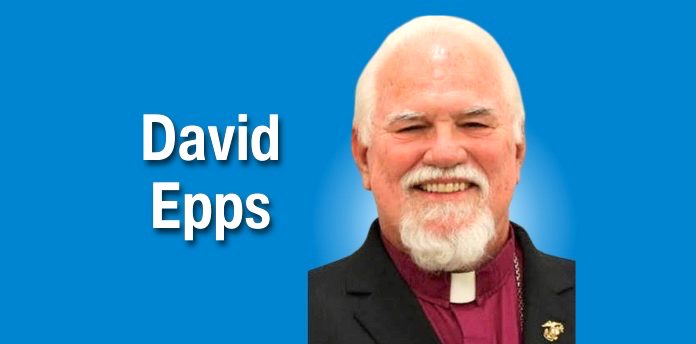
In the spring of 1977, I resigned from the pastoral ministry with no intention of ever returning to that profession again. But one must provide for the family so, having earned a Bachelor of Social Work degree, I took a position with the Tennessee Department of Human Services.
For the first few months, I worked in Greene County, an hour’s drive from where we lived. My primary role was to certify or recertify families for Aid to Families with Dependent Children (AFDC), what most Tennesseans simply called “welfare.”
Ultimately, I requested and received a transfer to Sullivan County where my job was in child protective services. I investigated allegations of child abuse and neglect and carried a caseload of about fifty families, all of whom needed a visit once a month and some who would require a great deal of oversight and intervention.
On that job, I was yelled at, cursed at, spit at, punched at, stabbed at, shot at, had my life threatened numerous times, and had two credible threats to the lives of my family. One of those threats was made by a man who later killed a deputy sheriff and who I hope is still in jail, if he is alive.
The job exposed me to a kind of poverty — an Appalachian poverty — I never knew existed in America. It also exposed me to the reality that people who are well off are not immune to violence or neglect against their own children.
It’s hard to say how many children I removed from their homes as a last resort. Dozens, at least. I removed a fifteen-year-old girl who was being sexually molested by her biological father. I removed five girls, ages about five to fifteen, who were being prostituted by their mother. I removed a seven-year-old girl who was being physically tortured by a stepmother who tied her to a chair and pushed her up against a coal-burning stove until the flesh on her shins was burned to the bones. I removed a baby whose mother was arrested for hiring an undercover officer to kill her husband. I removed a toddler who was so hungry that, in my presence, ate cat manure. A number of those “parents” I helped put in jail.
But, for the most part, the parents in my caseload were not bad people. They just needed help, training, and resources and wanted to care for their kids. If they needed to learn how to properly discipline their kids, learn how to cook and clean, manage a budget, learn how to shop, we had people who could help them do all of that. If we needed to apply pressure, we had family court. If sterner measures had to be employed, we had law enforcement and the courts.
At the same time, we became involved in a church served by a pastor with a hidden agenda. Hearing that I had resigned from the ministry, a pastor that I had known casually visited us and encouraged us to worship there until we were “healed.” It was a fresh start, we needed to be in church, so we agreed.
Over the next few months, we were slowly sucked into a church that I can only describe as a cult. Little by little more and more “suggestions” were made by the pastor that if we “really wanted to be a part” there was an increasing list of things to which we were to submit.
As time went on, I became increasingly aware that what was happening was not right. There was a growing insistence that our time, our money, our very lives belonged, not to Christ, but to that particular church. After nine months, we left. Sometime later, I heard that the pastor had abandoned his family and run off with a college-age girl.
For months after our departure, men from that church would show up during my lunch houe or after my work letting me know that if I didn’t get back into that church, I was in danger of Hell. What I learned was that people who are vulnerable are targets for such people and organizations.
One might say, “You should have known better.” I thought I would have known better too. However, “all things work together for good” and that terrible experience helped me minister to people who had been caught up in a similar experience many years later.
For all its faults, I believe in the church. After a month of not attending any church, I searched the newspapers and yellow pages for a nearby church that offered a children’s ministry. We had two young sons who needed the ministry of a loving and scripture-based church. I found one and, the next Sunday, loaded up the boys and headed into downtown Kingsport, TN. To my surprise, the church was in a storefront and was a church plant of the Assemblies of God. It had a big name, Tri-City Tabernacle, so, since we were there already, we went in.
For the next six months, we went to church and, while the boys were in the children’s church, I sat in the back row. I made it clear that I did not wish to be involved in anything other than Sunday services and, after being rebuffed several times, the pastor left me alone.
I had a stressful job, my family was trying to heal from the abusive pastor, and I had neither the time nor interest for “church life.” Those days were over. And then the unimaginable happened.
TO BE CONTINUED…
[David Epps is the Rector of the Cathedral of Christ the King (www.ctk.life). Worship services are on Sundays at 10:00 a.m. and on livestream at www.ctk.life. He is the bishop of the Diocese of the Mid-South (www.midsouthdiocese.life). He has been a weekly opinion columnist for The Citizen for over 27 years. He may be contacted at [email protected].]





